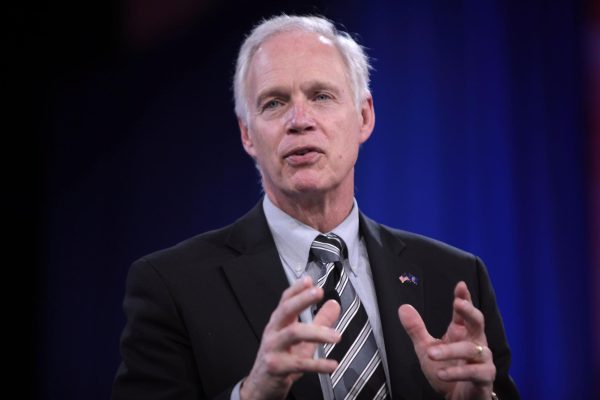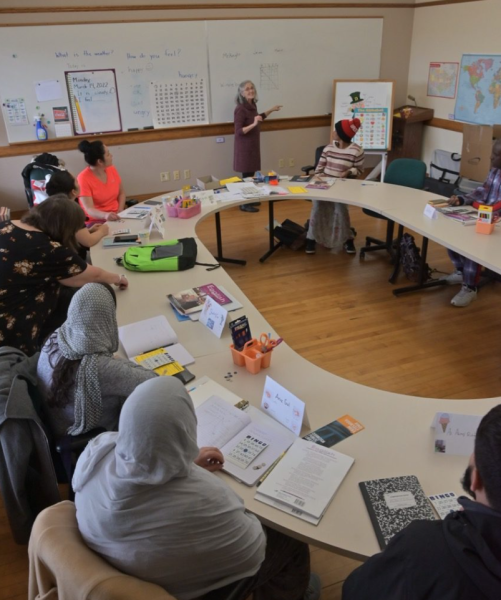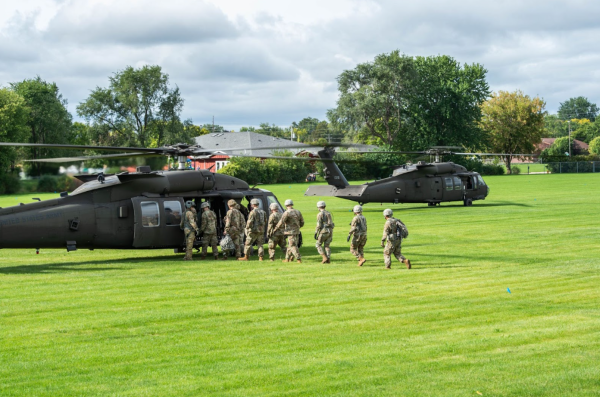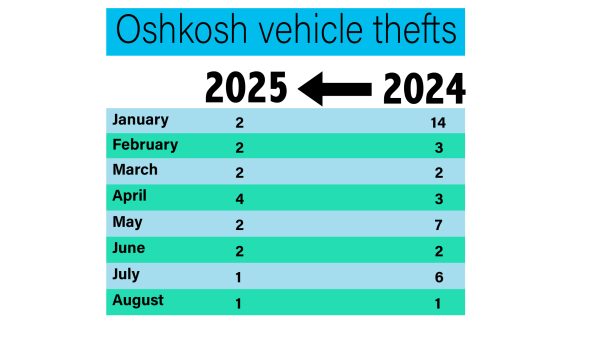UWO alumnus conducts research in Antarctica
UW Oshkosh alum Jason Coenen went to Antarctica during the 2013-2014 drilling season to study and to better understand the evolution of climate on Earth.
Coenen, who graduated UWO in 2013, finished his master’s at Northern Illinois University after an expedition to do research of basin history in Antarctica to understand the evolution of climate on Earth. Understanding this history is important in predicting Earth’s current climate change.
Coenen presented his research as part of the Geology Club’s speaker series March 8.
Coenen said after his colloquium, his adviser congratulated him on taking on such a hard research topic.
“He said, ‘I gave you something I didn’t expect anything to come out of it, and you found some really interesting results,’” Coenen said. “Which I mean I appreciate the compliment, but I was like, ‘Aw man you gave me nothing?’”
Coenen’s area of study is paleogene history. Paleogene is the time period from when the dinosaurs went extinct about 32 million years ago.
Coenen said his main goal included looking at diatoms in basins in west Antarctica and trying to piece together the history of the last million years working with his adviser and a major science project Whillans Ice Stream Subglacial Access Research Drilling also known as WISSARD.
“This group understand the controls of the west Antarctic ice sheet and what the biological communities look like beneath the sheet itself,” Coenen said. “So we developed a clean access protocol to try to see if there are things living under 800 meters or a half a mile under ice. ”
Coenen said his main discovery is really important information because it provides better understanding of the paleoclimate and glacial history of Antarctica, which is needed to better inform us about how ice in Antarctica might respond to present global warming.
Geology professor Timothy Paulsen said that simply put, Coenen is trying to better understand the evolution of climate in Antarctica to compare it to today climate change.
“You can view these [basins] like bathtubs that are accumulating sediments,” Paulsen said. “There are layers upon layers that are like the pages of a book. They basically record what’s going on at the time they are put down or deposited.”
Coenen said living in Antarctica was a crazy and different experience.
“It takes an army literally to collect these things,” Coenen said. “We had three science labs most of them were used to build the instruments to go down [into the basin] because there were a few microbiologist who wanted sample right there on site, we had our snow melter right there on site so we could melt through the base of the ice, we had lot of generators and lots of fuel because it takes a lot of energy to keep things operational.”
Coenen said his expedition almost didn’t happen due to the 2014 government shutdown.
Paulsen said it is exciting to see one of his former students be successful in their research.
“It is really neat for me because I do research in Antarctica and I have worked on similar age rocks that he is working on right now,” Paulsen said. “So it is really neat to see Jason go from an undergraduate student who was in my classes to go on and make that transition to an independent, critical thinking scientist.”
Geology Club chair Brooke Vander Pas said she was excited to see one of UWO’s alums in the department share his research with current undergrads.
“It was actually really cool to see one of the UWO geology alumni come back and share his research,” Vander Pas said. “The return of past students from several years, created a sense of community, which is a really unique thing to have. It was actually really inspiring thinking about how it could be any one of us up there in the future sharing our research with future geology majors.”
Coenen said his advice to undergraduate students who are looking to go on and do research in the graduate level is be flexible.
“The research questions and the projects you think you have coming in could drastically change,” Coenen said. “It might not be a government shutdown, it could be some form of analyses or a machine breaking, so you always have to be thinking on your feet.”






